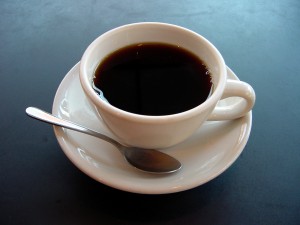“We’ve shown that caffeine reduces pain reliably, consistently during cycling, across different intensities, across different people, different characteristics.”
To this point I’ve discussed nutritional strategies and cold water immersion as recovery methods for endurance athletes. Now, the quest to relieve sore muscles, malaise and fatigue continues with a look at caffeine. While caffeine could’ve been discussed as part of nutrition, its role is quite different from the role that food plays.
Science Daily does it for us again. Two articles profile caffeiene’s benefits. The first, Caffeine Cuts Post-Workout Pain by 50 Percent, Study Finds, discusses caffeine’s post-workout role.
The article profiles a study from the University of Georgia where caffeine’s effects were studied in nine female college students. The subjects engaged in a workout that induced mild post-workout soreness. One and two days later they performed one of two different thigh exercises with some subject having taken caffeine and others taking a placebo. One caffeine-consuming group reported a 48 % reduction in pain compared to the placebo group. The other group experienced a 26% reduction in pain compared to placebo.
The authors concede several weaknesses in the study. First, there was a small sample size. Second, the subjects were all female. Finally, they were not regular consumers of caffeine. So we don’t know if the effect will be seen in the public at large, among men and/or among people who regularly ingest caffeine. That said, the findings may be of interest to endurance athletes looking to recover from strenuous workouts.

Move over Gatorade...
The second article, Caffiene Reduces Pain During Exercise, Study Shows looks at caffeine as a pain reducer when taken pre-workout. This study was performed by former competitive cyclist and University of Illinois kinesiology and community health professor Robert Motl. He and his friends had long consumed caffeine prior to tough rides. He eventually decided to study the substance.
Motl wanted to examine the effects of caffeine on muscle pain during high-intensity exercise as a function of habitual caffeine use. He examined two groups: one made up of habitual caffeine users, the other made up of non-caffeine users. He found both groups had similar reductions in muscle pain during exercise after caffeine consumption.
Motl says, “We’ve shown that caffeine reduces pain reliably, consistently during cycling, across different intensities, across different people, different characteristics.”
So what are the practical implications? Motl explains that caffeine and its pain-reducing effects should help you push harder and thus go faster and/or longer during your workout or race. Or perhaps you could do your same workout but more comfortably.
